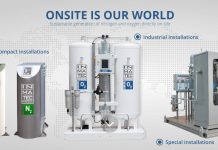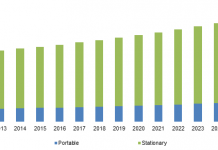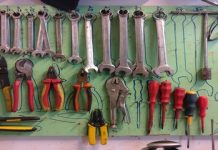Goldhaber, D.D., and Brewer, D.J. National Research Council. A science methodology course for middle and high school teachers offered experience in using the findings from laboratory investigations as the driving force for further instruction (Priestley, Priestly, and Schmuckler, 1997). 99-138). Using questioning to assess and foster student thinking. Some research indicates that teachers do not respond to sustained professional development by taking their new knowledge and skills to other schools, but rather by staying and creating new benefits where they are. These workshops include microteaching (peer presentation) sessions. Available at: http://www7.nationalacademies.org/bose/March_29-30_2004_High_School_Labs_Meeting_Agenda.html [accessed Oct. 2005]. McComas, W.F., and Colburn, A.I. Gamoran and colleagues found that, although the educational researchers provided an infusion of expertise from outside each of the six school sites, the professional development created in collaboration with the local schools had its greatest impact in supporting local teachers in developing their own communities. Teachers require several types of knowledge to succeed in these multiple activities, including (1) science content knowledge, (2) pedagogical content knowledge, (3) general pedagogical knowledge, and (4) knowledge of appropriate assessment techniques to measure student learning in laboratory education. Click here to buy this book in print or download it as a free PDF, if available. This earlier research indicated that, just as engaging students in laboratory experiences in isolation led to little or no increase in their understanding of the nature of science, engaging prospective or current science teachers in laboratory activities led to little or no increase in their understanding of the nature of science. Westbrook, S., and Marek, E. (1992). Other studies report that undergraduate laboratory work consists primarily of verification activities, with few opportunities for ongoing discussion and reflection on how scientists evaluate new knowledge (e.g., Trumbull and Kerr, 1993, cited in Windschitl, 2004). What types of knowledge do teachers use to engage learners in doing science? Lee and Fradd (1998) and others observe that some scientific values and attitudes are found in most cultures (e.g., wonder, interest, diligence, persistence, imagination, respect toward nature); others are more characteristic of Western science. Hilosky, A., Sutman, F., and Schmuckler, J. School administrators have a strong influence on whether high school science teachers receive the professional development opportunities needed to develop the knowledge and skills we have identified. The mystery of good teaching: Surveying the evidence on student achievement and teachers characteristics. Catley (2004) reports that having gone through the process of frustration, false starts and the elation of completion, [the teachers] came away with a deeper understanding of how inquiry works and a sense of empowerment. Loucks-Horsley, Love, Stiles, Mundry, and Hewson (2003) provide a detailed design framework for professional development and descriptions of case studies, identifying strategies for improving science teaching that may be applicable to improving laboratory teaching. Journal of Science Education and Technology, 4(2), 103-126. Committee on Techniques for the Enhancement of Human Performance: Occupational Analysis. It means focusing the students own questions. The organization and structure of most high schools impede teachers and administrators ongoing learning about science instruction and the implementation of quality laboratory experiences. Fred Hutchinson Cancer Research Center. Available at: http://www7.nationalacademies.org/bose/June_3-4_2004_High_School_Labs_Meeting_Agenda.html [accessed May 2005]. But those connections are not enough: science sense-making discourse must also help students to develop understanding of a given science concept and create links between theory and observable phenomena. Finally, adequate time is essential for student learning in laboratory experiences. Teachers require a deep understanding of scientific processes in order to guide students procedures and formulation of research questions, as well as deep understanding of science concepts in order to guide them toward subject matter understanding and other learning goals. Weiss, I.R., Pasley, J.D., Smith, P.S., Banilower, E.R., and Heck, D.J. laboratory notebooks, essays, and portfolios (Hein and Price, 1994; Gitomer and Duschl, 1998; Harlen, 2000, 2001). Classroom assessment and the national science education standards. Gamoran and others studied six sites where teachers and educational researchers collaborated to reform science and mathematics teaching, focusing on teaching for understanding. The guidelines also call on administrators to schedule no more than 125 students per teacher per day, if the teacher is teaching only physics (the same laboratory activity taught several times may not require preparation) and no more than 100 students per teacher per day if the. The paper recommend among others: . International Journal of Science Education, 18(7), 775-790. The program was designed in part to address weakness in science teachers understanding of the nature of science, which was documented in earlier research (Khalic and Lederman, 2000; Schwartz and Lederman, 2002). Songer, C., and Mintzes, J. It will show you how laboratory sessions can differ with respect to their aim and expected learning . One study indicated that significant change in teaching practice required about 80 hours of professional development (Supovitz and Turner, 2000). light, such as reflection, transmission, and absorption. As already known, most of the teacher candidates carry out closeended laboratory - practices throughout their university education [14]. We then present promising examples of approaches to enhancing teachers capacity to lead laboratory experiences. Teachers need to use data drawn from conversations, observations, and previous student work to make informed decisions about how to help them move toward desired goals. Olsen, T.P., Hewson, P.W., and Lyons, L. (1996). Millar, R. (2004). Washington, DC: American Psychological Association. However, the undergraduate education of future science teachers does not currently prepare them for effective laboratory teaching. Jump up to the previous page or down to the next one. Equity for linguistically and culturally diverse students in science education. In B.J. Show this book's table of contents, where you can jump to any chapter by name. In addition, there is little research on whether use of block scheduling influences teachers instruction or enhances student learning. We then compare the desired skills and knowledge with information about the current skills and knowledge of high school science teachers. Zip. This body of knowledge addressed the kind of laboratory instruction given to students, consideration of students with special needs, supportive teaching behaviors, models to engage students working in small groups, the sequencing of instruction, and modes of assessment (p. 121). Case studies of laboratory teaching show that laboratory activities designed to verify known scientific concepts or laws may not always go forward as planned (Olsen et al., 1996). (2004). Evaluating the evidence on teacher certification: A rejoinder. The teachers participated in and analyzed practical laboratory activities, studied theoretical underpinnings of the science education they were receiving, and learned about safety issues during hands-on activity. location_onUniversity of Michigan In response to surveys conducted in the mid-1990s, teachers indicated that, among the reasons they left their positionsincluding retirement, layoffs, and family reasonsdissatisfaction was one of the most important. University of Michigan Physics Department: GSI training course. In this program, faculty modeled lower-level inquiry-oriented instruction focused on short laboratory sessions with limited lecturing and no definitions of terms. They also modeled longer postlaboratory activities focused on using student data and observations as the engine for further instruction. Lee, O. Boys and girls in the performance-based classroom: Whos doing the performing? Teachers, Laboratory Attendants and Gardeners must be made to attend, at regular . Pre-service education and in-service professional development for science teachers rarely address laboratory experiences and do not provide teachers with the knowledge and skills needed to lead laboratory experiences. Another analysis of the data from the National Center for Education Statistics found that students in high schools with higher concentrations of minority students and poor students were more likely than students in other high schools to be taught science by a teacher without a major or minor in the subject being taught (U.S. Department of Education, 2004). For example, among high school teachers who had participated in professional development aimed at learning to use inquiry-oriented teaching strategies, 25 percent indicated that this professional development had little or no impact, and 48 percent reported that the professional development merely confirmed what they were already doing. Statistical analysis report. Teaching Assistant Responsibilities Arrive on time & remain in lab. Educational Evaluation and Policy Analysis, 23(1), 79-86. They found a large number of preparations, tried each one out, and identified one method as most likely to succeed with the introductory students. Bayer Corporation. The limited evidence available indicates that some undergraduate science programs do not help future teachers develop full mastery of science subject matter. Engaging students in analysis of data gathered in the laboratory and in developing and revising explanatory models for those data requires teachers to be familiar with students practical equipment skills and science content knowledge and be able to engage in sophisticated scientific reasoning themselves. Center for Education. Teacher awareness of students science needs and capabilities may be enhanced through ongoing formative assessment. Science Education, 77, 261-278. The authors concluded that professional development activities that are short-term interventions have virtually no effect on teachers behaviors in leading laboratory experiences. Cognition and Instruction, 15(4), 485-529. Supporting classroom discussions may be particularly challenging for teachers who work with a very diverse student population in a single classroom, or those who have a different cultural background from their students (see Tobin, 2004). Presentation to the Committee on High School Science Laboratories: Role and Vision, June 3-4, National Research Council, Washington, DC. Abstract available at: http://epx.sagepub.com/cgi/content/abstract/17/5/613 [accessed May 2005]. The literature provides an overview of a range of factors motivating and demotivating pre-service and in-service teachers, and the role teacher motivation plays in possible links with other areas. Journal of Research in Science Teaching, 27, 761-776. The condition of education. One study found that, when laboratories were easily accessible, 14- and 15-year-old students who used the facilities during their free time reported increased interest in academics and took advanced science courses (Henderson and Mapp, 2002). It is necessary even to lead students in activities designed to verify existing scientific knowledge. Washington, DC: Author. Journal of Science Education and Technology, 13(2), 189-206. (2004). Laboratory experiences as a part of most U.S. high school science curricula have been taken for granted for decades, but they have rarely been carefully examined. educational outcomes (Ferguson, 1998; Goldhaber, 2002; Goldhaber, Brewer, and Anderson, 1999; Hanushek, Kain, and Rivkin, 1999; Wright, Horn, and Sanders, 1997). Before its too late: A report to the nation from the national commission on mathematics and science teaching for the 21st century. Haase, B.S. In a year-long study of prospective biology teachers (Gess-Newsome and Lederman, 1993), the participants reported never having thought about the central ideas of biology or the interrelationships among the topics. Available at: http://www.nces.ed.gov/programs/coe/2004/section4/indicator24.asp [accessed Feb. 2005]. When one college physics professor taught a high school physics class, he struggled with uncertainty about how to respond to students ideas about the phenomena they encountered, particularly when their findings contradicted accepted scientific principles (Hammer, 1997). National Science Teachers Association. (2000). (2004). Clark, R.L., Clough, M.P., and Berg, C.A. Teachers who had engaged in even more intensive professional development, lasting at least 160 hours, were most likely to employ several teaching strategies aligned with the design principles for effective laboratory experiences identified in the research. Laboratory learning: Addressing a neglected dimension of science teacher education. The paraprofessional would help with setup, cleanup, community contacts, searching for resources, and other types of support (National Science Teachers Association, 1990). Javonovic, J., and King, S.S. (1998). Evaluating the effect of teacher degree level on educational performance. fessional development aligned with the curricula leads to increases in students progress toward the goals of laboratory experiences (Slotta, 2004). Chapel Hill, NC : Horizon Research. (2004). Data from the National Center for Education Statistics (2004) show variation in teacher qualifications from one science discipline to another. Bayer facts of science education 2004: Are the nations colleges adequately preparing elementary schoolteachers of tomorrow to teach science? Reynolds (Ed. Retired scientists and engineers: Providing in-classroom support to K-12 science teachers. The role of practical work in the teaching and learning of science. Among teachers who acted as heads of science departments, 21 percent indicated that the lack of opportunities for teachers to share ideas was a serious problem for science instruction (Smith et al., 2002). Committee on High School Biology Education, Commission on Life Sciences. These strategies included arranging seating to facilitate student discussion, requiring students to supply evidence to support their claims, encouraging students to explain concepts to one another, and having students work in cooperative groups. For example, the U.S. Department of Energy (DOE) launched its Laboratory Science Teacher Professional Development Program in 2004. These changes persisted several years after the teachers concluded their professional development experiences.. Researchers generally agree that the teachers academic preparation in science has a positive influence on students science achievement (U.S. Department of Education, 2000; National Research Council, 2001a). Meaning making in secondary science classrooms. Guiding students to formulate their own research questions and design appropriate investigations requires sophisticated knowledge in all four of the domains we have identified. Teacher and classroom context effects on student achievement: Implications for teacher evaluation. Cumulative and residual effects of teachers on future student academic achievement. (1989). The main purpose of laboratory work in science education is to provide students with conceptual and theoretical knowledge to help them learn scientific concepts, and through scientific methods, to understand the nature of science. Paper prepared for the Committee on High School Science Laboratories: Role and Vision, June 3-4, National Research Council, Washington, DC. Science Teacher Responsibilities: Designing, developing, and delivering quality lesson plans and curricula that adhere to national and school guidelines. This is knowledge drawn from learning theory and research that helps to explain how students develop understanding of scientific ideas. Not a MyNAP member yet? Ready to take your reading offline? Science teachers may be modeling instructional practices they themselves witnessed or experienced firsthand as students in college science classes. Many preservice teachers hold serious misconceptions about science that are similar to those held by their students (Anderson, Sheldon, and Dubay, 1990; Sanders, 1993; Songer and Mintzes, 1994; Westbrook and Marek, 1992, all cited in Windschitl, 2004). Looking inside the classroom: A study of K-12 mathematics and science education in the United States. Properly designed laboratory investigations should: have a definite purpose that is communicated clearly to students; focus on the processes of science as a way to convey content; incorporate ongoing student reflection and discussion; and enable students to develop safe and conscientious lab habits and procedures (NRC 2006, p. 101-102). (1994). The Role of the Teacher in . The available evidence indicates that the current science teaching workforce lacks the knowledge and skills required to lead a range of effective laboratory experiences. (1990). Science Education, 75, 121-133. Deng, Z. The laboratory has been given a central and distinctive role in science education, and science educators have suggested that there are rich benefits in learning from using laboratory activities. Darling-Hammond, L., Berry, B., and Thoreson, A. Paper presented at the annual meeting of the National Association for Research in Science Teaching, April, St. Louis, MO. (2002). However, a review of the literature five years later revealed no widespread efforts to improve laboratory education for either preservice or in-service teachers (McComas and Colburn, 1995). (2001). Harlen, W. (2001). (1999). Linn, E.A. The Fermi National Accelerator Laboratory has provided professional development programs for science teachers for several years (Javonovic and King, 1998). The laboratory science teacher professional development program. DeSimone, L.M., Garet, M., Birman, B., Porter, A., and Yoon, K. (2003). Coffey, Everyday assessment in the science classroom (pp. ReviewLiterature review: The role of the teacher in inquiry-based education. little information is available on the effectiveness of these efforts. Once again. Further research is needed to inform design of laboratory-focused teacher professional development that can support teachers in improving laboratory instruction.




